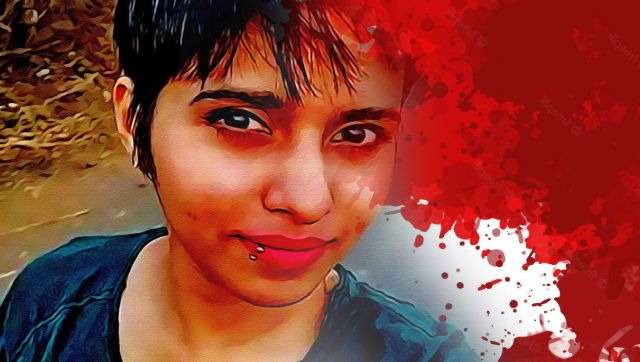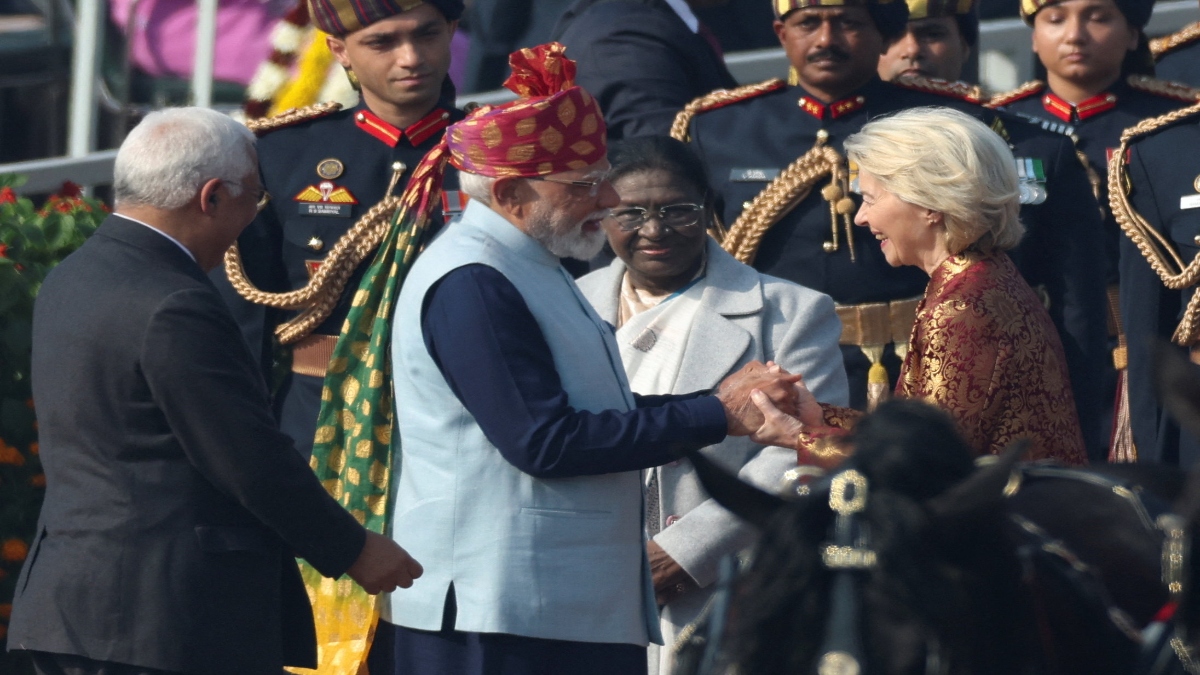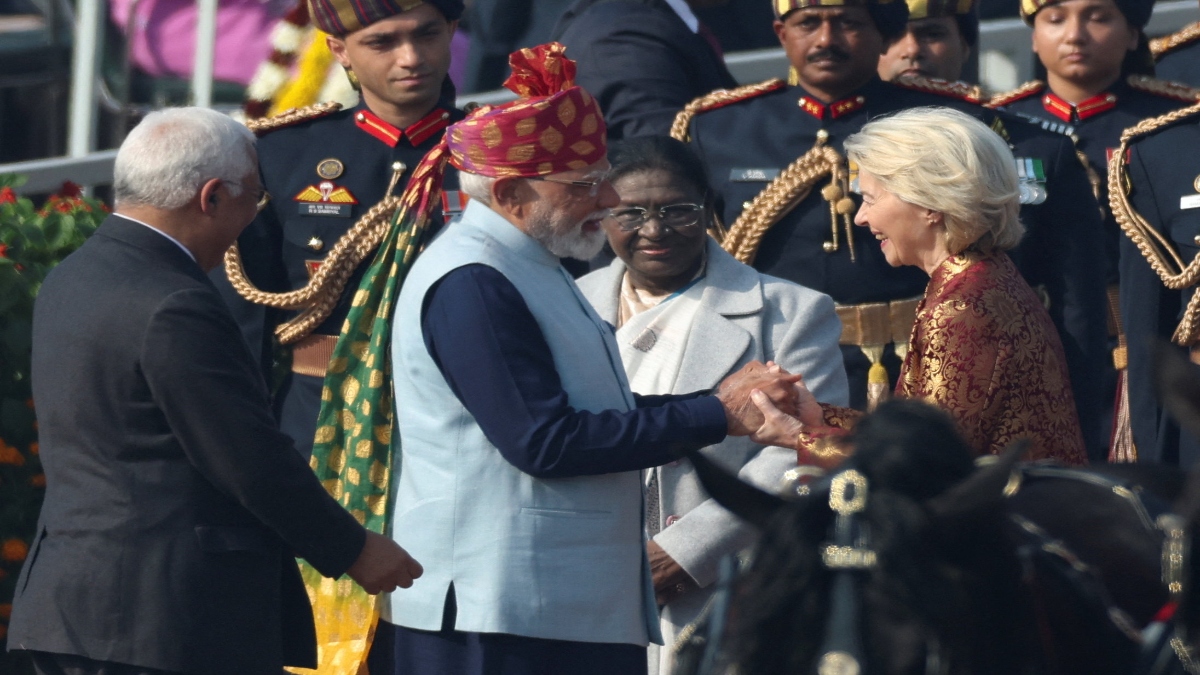Shraddha Walkar died in the most brutal of ways — she was strangled and her body was then chopped into over 30 pieces — allegedly at the hands of her live-in partner of three years, Aftab Amin Poonawala. Almost a week after the murder came to light, horrific details keep emerging from the case, shocking and stunning the people of India.
Investigations into the case now reveal that 26-year-old Shraddha had been hospitalised two years ago with internal injuries. According to the ongoing probe, Shraddha, who was then working in a call centre, had been admitted to a hospital in Vasai near Mumbai between 3 and 6 December in 2020. Photos from the time of the incident, released by her friends, also show a bruised Shraddha.
A doctor, who had then treated her, was quoted as telling NDTV, “She had spondylosis and trauma. There was no external injury but only internal injuries”, indicating that it could have happened owing to a fall at home or violence.
According to a News18 report, Shraddha had also consulted a doctor about Aftab’s anger issues and violent streak.
**Also read: From Delhi's Dexter-inspired killing to Tandoor murder: When love stories turned fatal**These revelations only add to previous claims by Shraddha’s friends that Aftab was abusive and the two shared a toxic relationship. In fact, Rajat Shukla, Shraddha’s friend from college, had revealed earlier that the couple used to have a lot of fights. “There was a fight to such an extent that she texted me on WhatsApp and asked me to take her somewhere that night. She said that if she lived with Aftab that night, he would kill her,” Rajat was quoted as saying by ANI.
Other friends were quoted as telling the Indian Express, “He had too much influence on her”, adding that Shraddha had even stopped communicating with her friends before her life was snuffed out.
Quick Reads
View AllAll this points to an unhealthy relationship filled with toxicity and abuse, prompting many to ask ‘ why didn’t she just leave him’ and ‘what made her stay’.
**Also read: The final moments of Shraddha Walkar before Aftab Poonawala strangled her and then cut up her body**However, the truth of the matter is that in most abusive relationships — married or live-in relationships, women continue to stay on, bearing the cruelty and torture, until, sometimes it’s too late.
Domestic violence in India
Shraddha is among the thousands of women in India who are subjected to domestic abuse. According to the National Crime Records Bureau (NCRB) report of 2021, of the total 4,28,278 instances of crimes against women, 1,36,192 cases were registered under the ‘cruelty by husband or his relatives’.
The NCRB report revealed that West Bengal reported the highest number of cases of cruelty against women by spouses or their relatives in 2021. A total 19,952 cases under Section 498A of the Indian Penal Code, which deals with violence against women by husbands and their relatives, were registered in the state.
As per the NHFS survey, 29.3 per cent married Indian women between the ages of 18-49 years have faced domestic violence
Uttar Pradesh with 18,375 such cases and Rajasthan with 16,949 instances rounded out the top three states where women see most domestic abuse.
The latest report by The National Family Health Survey (NFHS) also shows how pervasive domestic abuse is in Indian society. The survey states that 29.3 per cent married Indian women between the ages of 18-49 years have faced domestic violence/or sexual violence.
And that’s just the number of cases reported by women; there are always a large number of cases that never make it to the police.
But why don’t’ women leave then?
As simple as it may seem, many women continue to stay on in abusive — physical, sexual or emotional — relationships owing to a multitude of reasons. Experts and activists state that there are the complicated dilemmas women face in violent relationships.
Failure to recognise abuse: In many cases, it is hard to identify abuse. Women right activists and psychologists state that it is difficult for women and the people in her ecosystem to identify abuse, especially mental abuse. The fact that a man hasn’t manhandled his wife is cited as reason enough to stick around in the relationship.
Moreover, when a woman thinks that unhealthy or abusive behaviours are normal, it’s hard to identify the relationship as abusive and therefore there’s no reason to seek help.
Narendra Kinger, clinical psychologist and marriage counsellor from Mumbai, speaking to HuffPost, said, “We are not trained from an early age to understand what an abusive relationship is. Children in our country are not taught about conditions and situations that qualify as ‘abuse’. As we grow up and marry, women continue to bear it, while men carry on with their abusive behaviour.”
Societal pressures: Women from a young age have been prepared for marriage and across the world, a successful relationship is seen as a life achievement or marker that all must possess. Hence, when a relationship breaks down, women feel they have failed and it’s a blow to their self-worth.
Also, if a marriage or relationship fails, the woman is blamed for not having ‘adjusted to the situation.
Women also don’t leave abusive relationships as their family would be dragged through the coals for a choice she has made. Women are conditioned to try for that to not happen, till it becomes unbearable.
Many psychologists have noted that women facing abuse in relationships feel embarrassed to admit that their partner is abusive for fear of being judged, blamed, marginalised, pitied or looked down on
Financial constraints: Economic dependence plays an important part for women to stay in an abusive relationship. In many cases, women have said that their lack of a job and having any earnings forced them to remain in a violent relationship, as they had nowhere else to go and also didn’t have the wherewithal to seek help.
In some cases, working women have to leave their jobs owing to the abuse at the hands of their partner, leaving them once again dependent on the very same person who has been violent towards them.
Fear of their partner: Women, who have been subjected to abuse, often cite the fear of bodily harm as of the main reasons of them staying in the relationship. A survivor of domestic abuse was quoted as saying, “I was afraid of him… I knew he’d make leaving an ugly drawn-out nightmare. I was afraid that he would act on his threat of “hunting me down and harming all my loved ones, including our kids while I watched and then killing me.”
Hopeful of a better tomorrow: In many cases, abused women say that they continue on in the relationship because they believe that ‘love conquers all’. Many also believe that the abuse is a one-off incident and brush it aside, only for it to occur again.
Data and testimonials keep revealing that domestic abuse continues to remain a serious issue in India and the Shraddha Walkar story serves as a cautionary tale as how abusive relationships can end in the worst manner possible.
With inputs from agencies
Read all the Latest News, Trending News, Cricket News, Bollywood News,
India News and Entertainment News here. Follow us on
Facebook,
Twitter and
Instagram.


)

)
)
)
)
)
)
)
)



